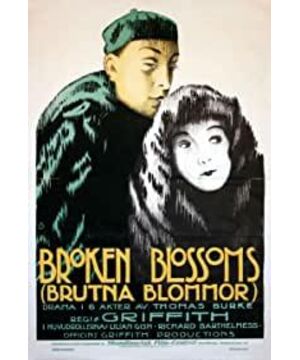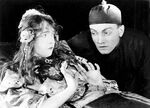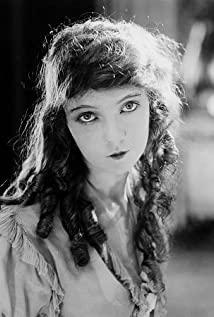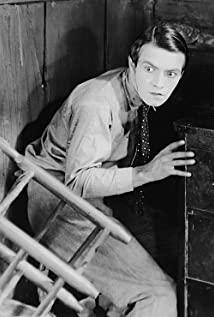The character close-ups, scene layout and montage in the second half of "Remnant Tears" really show the advantages of the film. In other words, it allows the audience to see the difference between a movie and a stage play.
The pain of Lucy's father's abuse, the brief happiness after falling in love with Cheng, and the despair of being taken home by his father at last, are all expressed through Lillian Gish's facial close-ups. As the ending, after the tragedy, Cheng confronted Battling, a few close-ups without dialogue made the audience feel Cheng's grief and Battling's cruelty.
Although the film was shot in a studio, the scenes are all very real. The foggy Limehouse is in sharp contrast with Cheng's carefully arranged residence. The former symbolizes the gloomy environment the protagonist is in, while the latter is a warm house that witnesses their love.
And when Lucy was taken away from Cheng's residence by his father, all the good things ended in an instant. On the one hand, Cheng walked into the dim city to buy flowers for Lucy, on the other hand, Lucy's life was gradually dying. The montage deepened the tragic effect-Cheng couldn't be in the perspective of God like the audience, and when he learned what had happened and turned his head to find Lucy, it was too late.
What impressed me a lot in the whole film was the scene where Lucy escaped to a small room and shut the door in order to avoid being beaten by his father. The camera keeps switching between the scared Lucy and his father who finally hit the door with an axe, as if more and more bad luck is approaching. We could not hear Lucy's exclamation, but we could tell from her body movements and facial expressions that she was deeply helpless. The small room she can't escape is just like the family plight she can't escape.
"Remnant Tears" uses the image of flowers to turn the invisible love and the fate of the characters into things that the audience can directly observe. The flowers in Cheng's room made Lucy feel Cheng's love and hope in life. And after Lucy's father destroyed all Cheng's belongings, Lucy's life was ruined like a flower.
Regrettably, even though "Remnant Tears" portrays Cheng as a positive character, this character always reflects the Westerners' stereotypes of the Chinese at the time-squinted eyes and hunched back, even though it looks ideal. But there is no energy. Griffith's thought of white supremacy is not only manifested in the direct vilification of blacks in "The Birth of a Nation", but also in the deliberately emphasized differences between whites and Asians in "Remaining Tears". Lucy's father opposed her being in love with the Chinese, and the film's criticism of this negative role only stopped at his alcoholism and brutality, and did not involve his racial discrimination. The romantic relationship between Lucy and Cheng originally came from Cheng’s sympathy for Lucy and Lucy’s gratitude to Cheng. It seemed to say that "love can overcome racial prejudice", but Griffith did not realize that racial prejudice itself was wrong. .
View more about Broken Blossoms reviews









